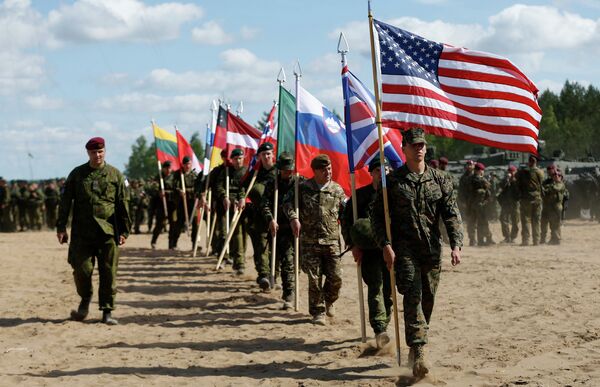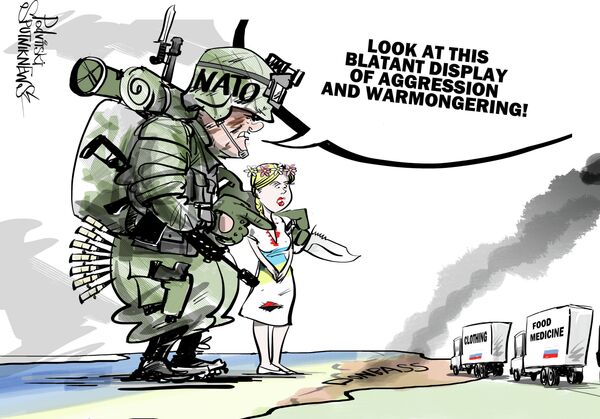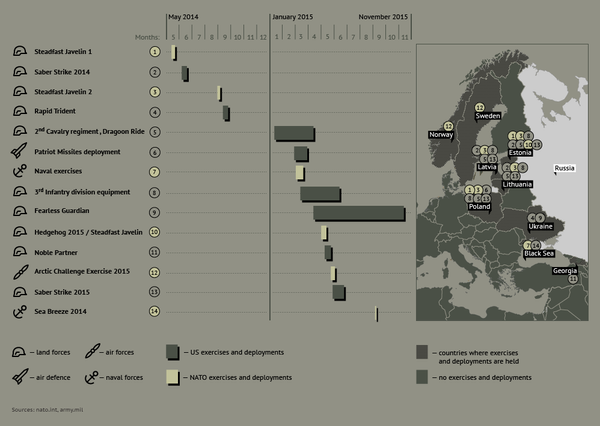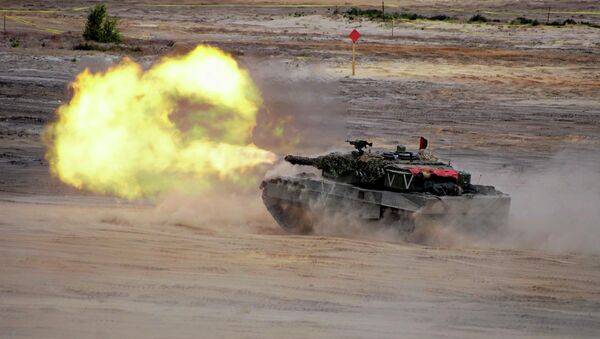The allegations surely lack any merit since Russia poses no military threat to the Baltic nations, the United States or any other country for that matter, the journalist noted. Claiming otherwise is "ridiculous."
"Russia has no intention whatever of presenting a military threat to America and has not done so. There is not one instance in which Russia has moved military forces to threaten the US. There are, however, countless instances of substantial US land, sea and air forces moving towards Russia's borders," Cloughley observed.

The US also justifies its activities by asserting that Russia is somehow to blame for the civil war in Ukraine, sparked by the US-sponsored coup in February 2014. To that end, according to the journalist, the West introduced several rounds of sanctions against Moscow and has used NATO to "menace the Russian homeland."
"NATO is desperately attempting to justify its existence – and its luxurious new billion dollar headquarters – and the Ukraine debacle is serving its purpose," Cloughley noted in an article published by the Strategic Culture Foundation.
Although Russia has been affected by the restrictive measures, "it is Russia's closest neighbors who are suffering most from the US-EU (read NATO) sanctions on economic growth," the journalist said. The Baltic states are estimated at losing nearly $800 million this year due to falling exports to Russia. This is hardly what Lithuania, Latvia and Estonia signed up for when they joined the EU.
But what if Russia wanted to threaten these countries: would it consider a military option? The journalist is convinced that this scenario is as far away from reality as is humanly possible.
"If Moscow wanted to be nasty to [the Baltic nations] it could do so quite simply, by stopping their gas supplies. The thought of Russia exerting military pressure on them is ludicrous, and not even the paranoid [US Marine General Joseph] Dunford could quote an example of this taking place," Cloughley observed, referring to Dunford's remarks during hearings at the Senate Armed Services Committee.
The general, expected to succeed Gen. Martin Dempsey as the Joint Chiefs of Staff chairman, called Russia "an existential threat to the United States," adding that Moscow's behavior is "nothing short of alarming."

Just to make it clear, Russia considers the Baltic states and other European countries that Moscow is “allegedly threatening” as valuable trading partners. "It would be insane of Russia to even contemplate invading these countries, or any others for that matter," the journalist said.
Yet despite solid facts disproving the US narrative, "the West refuses to accept that there is no Russian military threat to any other nation," Cloughley noted, adding that US military officials hyping up nonexistent Russian threat, like Dunford, present truly perilous to peace.




